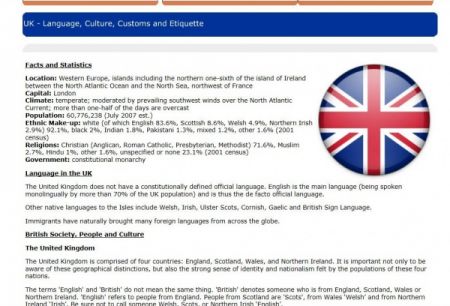The internet age should see the elimination of injustice. We have access to a lot of information through the net. But do we think about and analyse what we see?
This is how other people see us:
Take Bidayuh. Spoken by 200,000 people in East Malaysia, where 140 primary schools have Bidayuh-speaking teachers, the language should not be in danger. But it is. It is neither a medium of instruction nor a school subject – partly because there are hardly any books in Bidayuh and there is no standard form that all its speakers understand. Children grow up studying in Malay and English. They may use Bidayuh in their village but have little need for it after moving to towns for work. When their grandparents die they often stop using it altogether.
Gandhi once said,’ What we do today is not for tomorrow or the following day but it is for the next generation.’ How many leaders today think that way ?
What worries me particularly is the youth today in Malaysia. They are excellent. They are vibrant. They are full of energy. They are dared to change. But one thing they do not do is think and analyse much beyond the requirements of their course work. The education system has curtailed logical reasoning and led people to think less.
Rio +20, held in Brazil, is an event in which the youth of the world try to help make the world a better place to live in. The youth in Rio +20 sought equality, especially on issues of culture and poverty, and elected the Esperanto representative to speak about the need to reform the education system.
I cannot help but wonder how many of today’s Malaysian youth knew about Rio +20 and took part in the voting of the top ten issues to be addressed by the leaders of the world. There are educated young people who do not like to support mother tongue education. They would rather forgo their right and the recommendation of UNESCO to preserve and promote such education.
The opposition parties in Malaysia keep calling for the country to be one without the division of race. It is easy to erase ethnicity from the record, but it is not possible to erase off your DNA. The features of your face and the colour of skin can tell who you are, even if our brilliant former Prime Minister had changed the constitution to define the Malay race by custom and religion.

Equal opportunities have long existed in the West – but does the issue of language equality enjoy the same statues ?
When a language is lost, a culture is lost and the wisdom from a community is lost.
But, in Malaysia the youth think differently. They want to follow the conventional way of thinking – to promote the use of a single language – the consequence of which is the disappearance of more languages. To use any language as the major language is to kill the minority languages. Those in the majority would enjoy the benefits at some point in time, but these benefits will not be permanent.
The majority does not win all the time. Take the decision on the national language of Indonesia. Part One of this article explained how an easy-to-learn language can help people to communicate better. From an economic perspective, being able to learn a language in a lesser amount of time can be called Language Economy.
It should be stressed that all languages, spoken or written are beautiful. It is the core of a people’s wisdom, enriched from generation to generation.
But nowadays, linguistic colonialism is raising its ugly head against the weak. What will the youth of today do? Are they going to stand up to fight for justice?
Are Malaysia’s leaders of today or tomorrow thinking of our future generations ?
It is clear to see that many are still calling for English, the colonial language, to require at least a pass or even a credit. Do they know that 75% of the people in the world do not speak a word of English? This fact, acknowledged by BBC, may come across to many as shocking.
If you search the web for the phrase ‘ English is the biggest mother language killer‘, you can find thousands of research articles. This also implies that the Malay language may well be killed by English.
It is time for the youth of Malaysia today not to worry excessively about sharing the items on Facebook, but to seriously consider what can be done for the country in order to achieve harmony, and how the central issue of language can be resolved without destroying any culture.
Malaysia is truly Asia, says our well-known tourism slogan. But how can she be truly Asia with a monolingual policy and a people who speak only a single language?
I leave this short film for you to think about what the future will be like, if the assertion that South East Asia has the highest number of English speakers is true.
[youtube]w8mufJngOHQ[/youtube]
Do not forget the sentiment of Europeans expressed in the GRIN Report. Of course, the words of Mohandas Karamchand Gandhi touched me most:
To give millions a knowledge of English is to enslave them. (…)It is worth noting that by receiving English education we have enslaved the nation.(Hind Swaraj Ch.18)


I think I know one way you should undertake to prove your point. Sure I've heard a lot of talk about Esperanto being cost-efficient to teach because of its simplistic grammar, but we all want to know if English can remain economically viable in the foreseeable future in a time when we're grappling with a worldwide financial crisis and perhaps an imminent global economic meltdown.
All we need to do is research, research, research. Ask this, how much is needed to teach almost 2 million children below 15 in the world … or perhaps in one or two countries, and how much is that compared to one country's national debt and so on. The more answers we get, the more justified this Esperanto quest becomes.
Saluton Burungmarah
If you have followed my articles on Esperanto issues and have clicked the links that I supplied, all the answers were there. The research has long been done in the world and it is the matter of the government to support it eventhough UNESCO had urge and resolutons had passed years ago.
Thus, I do not like to repeat the quoting again here but just to stress that Esperantists do not pinned down for learning other languages. The economy values of Esperanto is a lot in Esperanto as the Brazilans are doing it well with China. It is when you can read Esperanto, you can know the development of it.